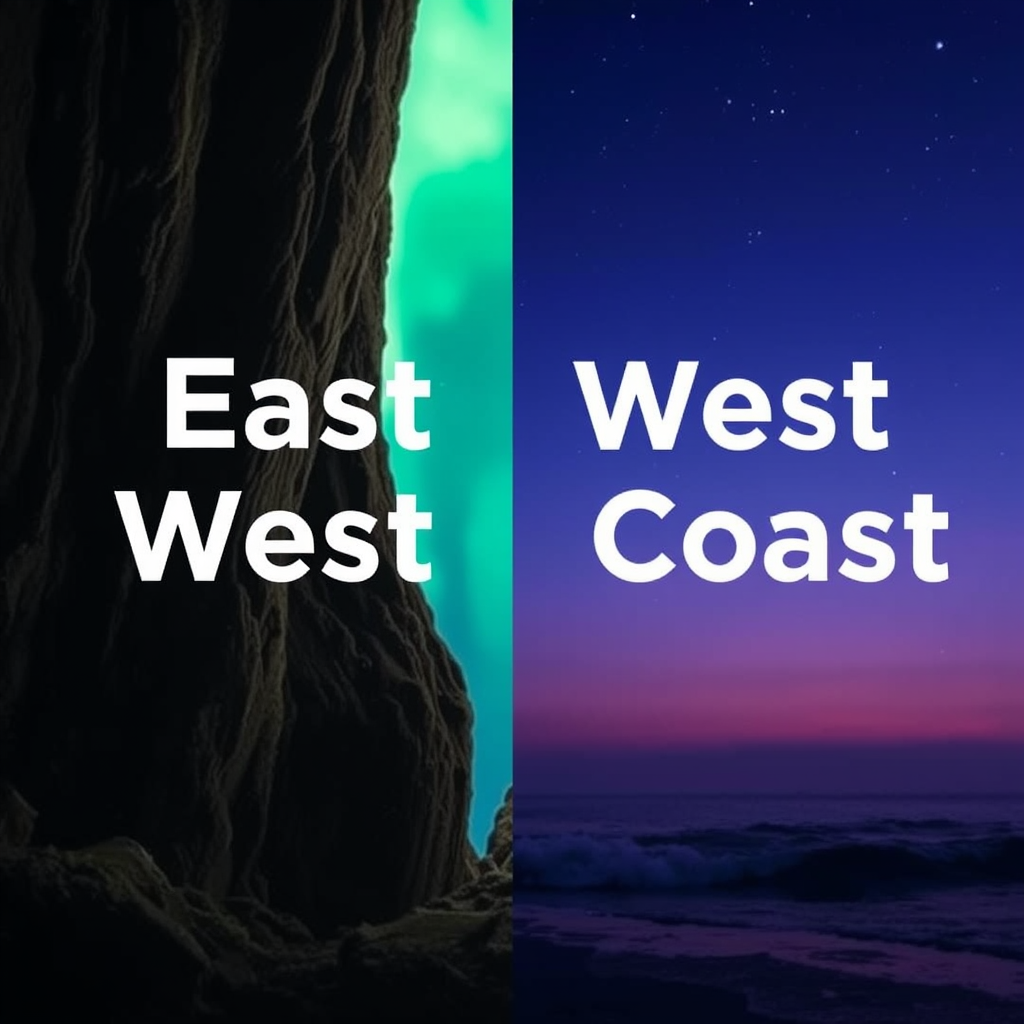East Coast vs. West Coast: Which Vibe is Right for You?

East Coast vs. West Coast: Which Vibe is Right for You?
Choosing between the East Coast and West Coast can feel like deciding between two completely different worlds. Both regions boast unique cultures, landscapes, and lifestyles. This guide breaks down the key differences to help you determine which coast aligns best with your personal vibe and aspirations.
Table of Contents
- Climate and Landscape
- Culture and Lifestyle
- Cost of Living
- Food Scene
- Conclusion: Finding Your Coastal Home
- FAQ
Climate and Landscape
One of the most significant differences lies in the weather. The East Coast experiences four distinct seasons, with cold, snowy winters and hot, humid summers. You can expect vibrant autumn foliage and cozy fires in the winter months. States like Maine and Massachusetts are known for their rocky coastlines, charming New England towns, and beautiful forests.
The West Coast, particularly California, enjoys a Mediterranean climate with mild, wet winters and warm, dry summers. Think year-round sunshine, palm trees, and breathtaking beaches. From the towering redwoods of Northern California to the desert landscapes of Southern California, the West Coast offers diverse natural beauty. Oregon and Washington boast lush rainforests, rugged coastlines, and stunning mountain ranges.
Culture and Lifestyle
The cultural differences between the coasts are profound and shape the daily lives of residents. This section delves deeper into several key aspects.
Pace of Life
The East Coast is often characterized by its fast-paced, ambitious atmosphere. Cities like New York City and Boston are known for their high-energy environments and demanding work cultures. People tend to be more direct and assertive. There's a strong emphasis on tradition and history.
The West Coast, especially Southern California, is generally perceived as more laid-back and relaxed. There's a greater emphasis on work-life balance and outdoor activities. People are often described as being more open-minded and accepting of diverse lifestyles.
Career Opportunities
The East Coast is a major hub for finance, media, law, and education. New York City is the financial capital of the world, while Boston boasts a thriving academic and medical research scene. Expect more traditional career paths and established industries.
The West Coast, particularly Silicon Valley, is synonymous with technology and innovation. It's also a major center for entertainment, aerospace, and renewable energy. There are abundant opportunities for entrepreneurs and those seeking careers in cutting-edge fields.
Entertainment and Nightlife
The East Coast offers a rich tapestry of cultural experiences, from Broadway shows in New York City to historical landmarks in Philadelphia and world-class museums in Washington, D.C. The nightlife is diverse, ranging from upscale bars to cozy pubs and intimate jazz clubs.
The West Coast is known for its vibrant music scene, film industry, and outdoor recreation opportunities. From surfing in Malibu to hiking in Yosemite National Park, there's always something to do. Nightlife options range from trendy nightclubs to beach bonfires and live music venues.
Cost of Living
Generally, the cost of living is high on both coasts, but there are variations. Major East Coast cities like New York City are notoriously expensive, especially when it comes to housing. However, smaller cities and towns in New England and the Mid-Atlantic region can offer more affordable options.
The West Coast also has a high cost of living, particularly in California. San Francisco and Los Angeles are among the most expensive cities in the US. While Oregon and Washington are generally more affordable than California, housing costs have been rising rapidly in recent years.
Food Scene
The East Coast food scene is characterized by its classic dishes and diverse ethnic influences. Think New York-style pizza, Boston clam chowder, and Philadelphia cheesesteaks. You'll find a wide range of international cuisines, reflecting the region's immigrant history.
The West Coast food scene is known for its fresh, seasonal ingredients and innovative culinary trends. California cuisine emphasizes locally sourced produce and healthy options. You'll find a wide variety of food trucks, farmers' markets, and upscale restaurants. "Balance in life is the key to happiness," and that applies to your diet, too! West Coast cuisine often reflects this philosophy.
Conclusion: Finding Your Coastal Home
Ultimately, the best coast for you depends on your personal preferences, career goals, and lifestyle aspirations. If you thrive in a fast-paced environment, appreciate historical traditions, and enjoy experiencing all four seasons, the East Coast might be a good fit. If you prefer a more relaxed atmosphere, prioritize outdoor activities, and are drawn to innovation and technology, the West Coast could be your ideal home.
FAQ
Here are some frequently asked questions about the East Coast vs. West Coast debate:
Q: Is it easier to find a job on the East Coast or the West Coast?
A: It depends on your field. The East Coast is strong in finance, media, and law, while the West Coast excels in technology and entertainment. Research job markets in your specific industry to determine which coast offers more opportunities.
Q: Which coast is better for families?
A: Both coasts offer excellent options for families, but the East Coast might be preferable if you value strong school systems and established communities. The West Coast offers more outdoor recreational opportunities and a generally more relaxed lifestyle, which may also be appealing to families.
Q: Which coast has better public transportation?
A: The East Coast generally has better public transportation, particularly in major cities like New York City, Boston, and Philadelphia. West Coast cities are more car-dependent, although some cities, like San Francisco, have decent public transportation options.


Comments
Post a Comment